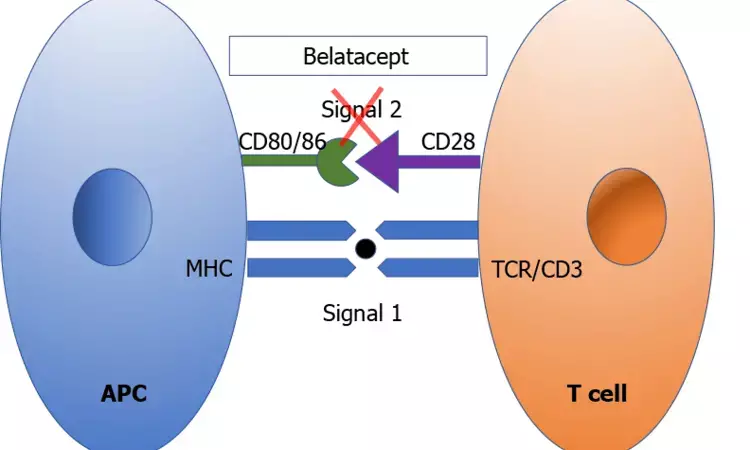- Home
- Medical news & Guidelines
- Anesthesiology
- Cardiology and CTVS
- Critical Care
- Dentistry
- Dermatology
- Diabetes and Endocrinology
- ENT
- Gastroenterology
- Medicine
- Nephrology
- Neurology
- Obstretics-Gynaecology
- Oncology
- Ophthalmology
- Orthopaedics
- Pediatrics-Neonatology
- Psychiatry
- Pulmonology
- Radiology
- Surgery
- Urology
- Laboratory Medicine
- Diet
- Nursing
- Paramedical
- Physiotherapy
- Health news
- Fact Check
- Bone Health Fact Check
- Brain Health Fact Check
- Cancer Related Fact Check
- Child Care Fact Check
- Dental and oral health fact check
- Diabetes and metabolic health fact check
- Diet and Nutrition Fact Check
- Eye and ENT Care Fact Check
- Fitness fact check
- Gut health fact check
- Heart health fact check
- Kidney health fact check
- Medical education fact check
- Men's health fact check
- Respiratory fact check
- Skin and hair care fact check
- Vaccine and Immunization fact check
- Women's health fact check
- AYUSH
- State News
- Andaman and Nicobar Islands
- Andhra Pradesh
- Arunachal Pradesh
- Assam
- Bihar
- Chandigarh
- Chattisgarh
- Dadra and Nagar Haveli
- Daman and Diu
- Delhi
- Goa
- Gujarat
- Haryana
- Himachal Pradesh
- Jammu & Kashmir
- Jharkhand
- Karnataka
- Kerala
- Ladakh
- Lakshadweep
- Madhya Pradesh
- Maharashtra
- Manipur
- Meghalaya
- Mizoram
- Nagaland
- Odisha
- Puducherry
- Punjab
- Rajasthan
- Sikkim
- Tamil Nadu
- Telangana
- Tripura
- Uttar Pradesh
- Uttrakhand
- West Bengal
- Medical Education
- Industry
Belatacept Safer than calcineurin inhibitors in Kidney Transplantation patients, reveals research

Belatacept has emerged as a promising alternative to calcineurin inhibitors (CNIs) in kidney transplantation, offering a potentially safer immunosuppressive approach with reduced long-term complications. CNIs, while effective in preventing graft rejection, are consistently linked to nephrotoxicity and increased cancer risk, particularly non-melanoma skin cancer (NMSC). In a recent narrative review, researchers explored the mechanistic and clinical evidence surrounding belatacept, with a particular focus on skin cancer incidence in kidney transplant recipients.
The analysis highlights that belatacept, a selective co-stimulation blocker targeting the CD28-CD80/86 pathway, avoids the chronic nephrotoxic effects associated with CNIs. This not only helps preserve long-term graft function but also improves patient outcomes by minimizing one of the most common causes of late graft failure. Importantly, the review underscores that CNI exposure contributes to DNA damage, impaired DNA repair, and oncogenic viral reactivation, all of which elevate cancer risk, especially for skin malignancies in immunosuppressed patients.
Evidence from clinical studies and registry data suggests that belatacept-treated patients may have a lower incidence of NMSC compared to those receiving CNIs. In addition, belatacept appears to reduce the burden of metabolic complications such as hypertension and diabetes, further supporting its potential role in improving long-term survival. However, the authors caution that belatacept is not without risks. It has been associated with higher rates of early acute rejection episodes, particularly in Epstein-Barr virus (EBV)–seronegative patients, necessitating careful patient selection and monitoring.
Overall, the findings indicate that belatacept could represent a safer, more sustainable option for kidney transplant recipients, especially those at higher risk for CNI-related toxicities and malignancies. The review emphasizes the need for long-term, large-scale studies to confirm these benefits and to optimize protocols for belatacept use in diverse patient populations.
Keywords: belatacept, calcineurin inhibitors, kidney transplantation, nephrotoxicity, non-melanoma skin cancer, immunosuppression
Dr. Shravani Dali has completed her BDS from Pravara institute of medical sciences, loni. Following which she extensively worked in the healthcare sector for 2+ years. She has been actively involved in writing blogs in field of health and wellness. Currently she is pursuing her Masters of public health-health administration from Tata institute of social sciences. She can be contacted at editorial@medicaldialogues.in.


